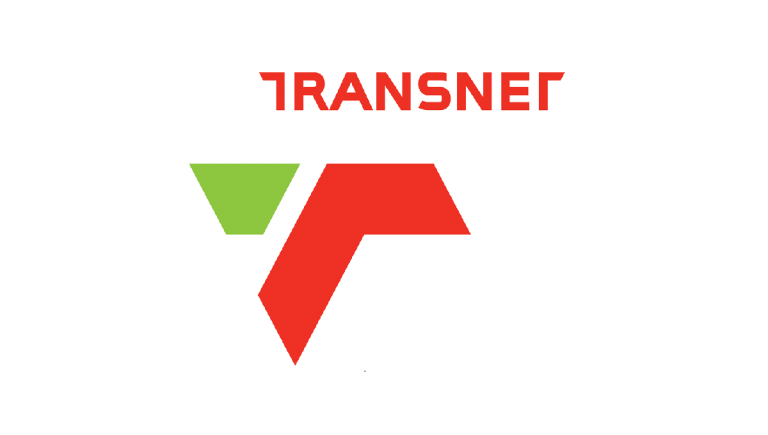University Courses: what To Know About Adult Education – A Detailed Guide
Adult education is an increasingly important field that allows individuals to pursue learning opportunities beyond traditional schooling. Whether it’s for career advancement, personal development, or acquiring new skills, adult education programs are designed to meet the diverse needs of learners who are no longer in their youth but still eager to continue their educational journey.
If you’re considering enrolling in an adult education program or simply want to know more about the subject, understanding the types of courses available, the benefits of adult education, and the different career opportunities in this field is crucial. In this article, we will explore what adult education is, the various courses you can take, and the benefits it offers to individuals who choose to continue their education later in life.
What is Adult Education?
Adult education refers to the practice of teaching and educating adults, either for personal enrichment or career advancement. It encompasses a wide range of learning opportunities, from basic literacy courses to specialized professional training. The primary goal of adult education is to provide learners with the skills and knowledge they need to succeed in their personal, professional, and social lives.
Unlike traditional education systems, which generally cater to children and adolescents, adult education is more flexible and often tailored to fit the needs of working adults, parents, or older individuals. Programs can vary in length, delivery method, and subject matter, and they often emphasize practical skills that can be directly applied to real-world situations.
Types of Adult Education Courses
Adult education courses are diverse, offering something for everyone—whether you are looking to develop specific skills, earn a qualification, or explore a new subject. Here are some of the most common types of courses available in adult education:
1. Basic Education and Literacy Courses
Basic education courses are designed for adults who may have missed out on formal schooling or need to improve foundational skills. These courses typically cover essential subjects such as reading, writing, mathematics, and basic computer skills. Many adult education programs offer literacy and numeracy courses to help individuals enhance their fundamental skills, which are crucial for personal and professional success.
These courses provide a solid foundation for individuals who wish to pursue further studies or advance in their current careers. For instance, many adult learners start with basic education courses before progressing to more specialized training or degree programs.
2. General Education Development (GED)
The General Education Development (GED) test is one of the most well-known adult education credentials. It is designed for individuals who have not completed high school and wish to earn an equivalent diploma. The GED covers four primary areas: language arts, mathematics, science, and social studies. Passing the GED exam demonstrates that an adult learner has the academic skills equivalent to a high school graduate.
GED programs are widely available and offer adult learners the opportunity to gain the qualifications needed for further education, employment, or personal achievement.
3. Vocational and Technical Courses
Vocational and technical courses are practical programs that equip adults with specific skills for employment in various industries. These programs typically focus on job-specific training and often result in certification or licensure. Fields such as healthcare, construction, information technology, and culinary arts all offer vocational programs that prepare students for specific career paths.
For example, adult learners may pursue courses in medical billing and coding, electrical work, plumbing, or software development. Vocational courses allow individuals to gain specialized knowledge that directly translates into employability, making them a popular choice for adults looking to change careers or enhance their skill sets.
4. Higher Education Degree Programs
Adult learners who wish to pursue a college or university degree later in life can choose from a variety of programs tailored to the needs of non-traditional students. Many universities and colleges offer degree programs in flexible formats, including online courses, evening classes, and weekend programs, to accommodate adult learners’ schedules.
Whether it’s pursuing an undergraduate degree or earning a master’s degree, adult education degree programs are designed to provide individuals with advanced knowledge and the credentials necessary to further their careers or explore new professional opportunities.
5. Online Learning
In today’s digital age, online learning has become an essential part of adult education. Online courses provide flexibility, allowing adult learners to access materials and complete assignments at their own pace. Many universities, community colleges, and training institutes offer a wide range of online courses and degree programs in various fields.
Whether it’s a short course to improve specific skills or a full-fledged degree program, online education allows adults to pursue their learning goals without disrupting their work-life balance. It also opens up opportunities for learners who may not have access to traditional classroom settings.
6. Continuing Education and Professional Development
Many adults take courses to improve their current skill set and enhance their professional qualifications. Continuing education programs provide opportunities for workers to gain new certifications, learn about industry trends, or expand their knowledge in their current field. These courses are often short-term and are designed to help individuals stay competitive in the workforce.
For instance, professionals in fields like healthcare, education, finance, and business often take continuing education courses to stay up-to-date with the latest industry standards and regulations.
Benefits of Adult Education
Adult education offers several benefits for individuals who choose to pursue it. Here are some of the key advantages of continuing your education as an adult:
1. Improved Career Prospects
One of the primary motivations for pursuing adult education is to improve career prospects. By gaining new skills or earning a degree, adults increase their chances of advancing in their current job or transitioning to a new career. Adult education can open doors to better job opportunities, higher wages, and greater job security.
Additionally, acquiring new certifications or completing vocational training can make you more competitive in the job market, especially in industries that are evolving or in high demand, such as healthcare and technology.
2. Personal Growth and Fulfillment
Adult education isn’t just about career advancement—it’s also an opportunity for personal growth. Many adults pursue learning for the satisfaction of acquiring new knowledge or mastering a new skill. Whether you’re learning a new language, exploring the arts, or gaining practical skills, adult education can be incredibly fulfilling.
Lifelong learning has been shown to contribute to improved self-esteem, cognitive function, and overall well-being. Adults who engage in learning opportunities often report higher levels of satisfaction and happiness in their personal lives.
3. Increased Flexibility and Convenience
Unlike traditional education, adult education courses are often designed with flexibility in mind. Many programs offer evening or weekend classes, as well as online options, allowing adults to balance their educational goals with work, family, and other responsibilities. The flexibility of adult education makes it easier for individuals to pursue their studies without sacrificing other important aspects of their lives.
4. Building a Stronger Community
Adult education programs often bring together individuals from diverse backgrounds and experiences. This provides an opportunity to build new relationships, share ideas, and learn from one another. For many adults, continuing education fosters a sense of community and belonging, as they connect with others who are on similar learning journeys.
Career Opportunities in Adult Education
Adult education offers a wide range of career opportunities for individuals who are passionate about teaching, training, and supporting others in their educational journey. Here are some career paths in the field of adult education:
1. Adult Education Instructor
One of the most common careers in adult education is that of an instructor or teacher. Adult education instructors teach a variety of subjects, including basic literacy, vocational training, college preparation, and continuing education. These instructors may work in community colleges, adult education centers, or nonprofit organizations.
2. Corporate Trainer
Corporate trainers are responsible for providing professional development and training to employees within a company. They design and deliver training programs to improve employees’ skills and knowledge in areas such as leadership, communication, and technical expertise. Corporate trainers often work in businesses, corporations, and government agencies.
3. Education Consultant
Education consultants in adult education work with schools, colleges, or organizations to develop and improve educational programs. They provide guidance on curriculum design, teaching strategies, and educational technologies. Education consultants may also be involved in the evaluation and assessment of educational programs.
4. Instructional Designer
Instructional designers create educational materials and resources for adult learners. They work with educators and institutions to design curricula, course materials, and assessments that are effective, engaging, and suitable for adult learners. Instructional designers may work in various settings, including universities, online learning platforms, and corporations.
Adult education is a vital and expanding field that provides individuals with the tools they need to succeed in their personal and professional lives. Whether you want to gain new skills, pursue a degree, or improve your career prospects, adult education offers a range of flexible and accessible options. The benefits of adult education are clear, from career advancement and personal fulfillment to building stronger communities and gaining valuable life skills.
If you’re interested in continuing your education, explore the various programs available and find one that fits your goals, schedule, and interests. With the right education and training, you can open new doors and achieve success in both your personal and professional life.




